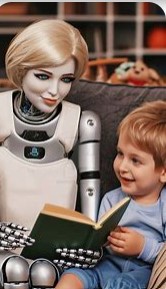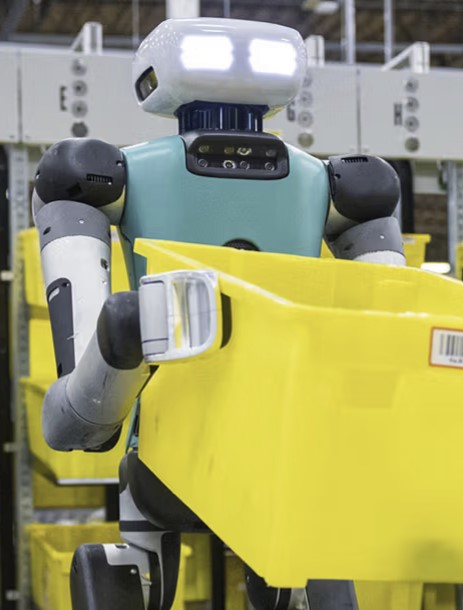Living with Nosey Mole for such a long time and sacrificing television news, and having a disinterest in social events, even the tunnels have their own negative shadows. To pass his time, he has revisited his library (remember books are telomeres; February 16 2025 post). His interests have turned to the influential subjects of his earlier years – most often philosophy, sociology and ancient political history.
He pulled off the shelf a DVD of Joseph Campbell’s famous interviews with Bill Moyers in 1988 (PBS). Joe Campbell was the foremost mythologist of his time. Don’t discredit the term because of street usage. Joe was a renown college professor of religion and mythology at Sarah Lawrence College and credited with identifying the ‘monomyth’. He is the writer who made the story of Jason’s pursuit of the Golden Fleece quite popular as “The Arc of the Hero” – a generalized description that suggests everyone marches in tune with a monomyth.
An outstanding letter by Native American Chief Seattle clearly represents the fact that we live within the limits of a myth, that is, a myth which by definition cannot have words; that is the theological part. See if you can identify the monomyth that allowed Native American civilization to survive for ten thousand years – until Europeans arrived living under a different monomyth.
Chief Seattle’s Letter “The President in Washington sends word that he wishes to buy our land. But how can you buy or sell the sky? the land? The idea is strange to us. If we do not own the freshness of the air and the sparkle of the water, how can you buy them?
Every part of the earth is sacred to my people. Every shining pine needle, every sandy shore, every mist in the dark woods, every meadow, every humming insect. All are holy in the memory and experience of my people.
We know the sap which courses through the trees as we know the blood that courses through our veins. We are part of the earth and it is part of us. The perfumed flowers are our sisters. The bear, the deer, the great eagle, these are our brothers. The rocky crests, the dew in the meadow, the body heat of the pony, and man all belong to the same family.
The shining water that moves in the streams and rivers is not just water, but the blood of our ancestors. If we sell you our land, you must remember that it is sacred. Each glossy reflection in the clear waters of the lakes tells of events and memories in the life of my people. The water’s murmur is the voice of my father’s father.
The rivers are our brothers. They quench our thirst. They carry our canoes and feed our children. So you must give the rivers the kindness that you would give any brother.
If we sell you our land, remember that the air is precious to us, that the air shares its spirit with all the life that it supports. The wind that gave our grandfather his first breath also received his last sigh. The wind also gives our children the spirit of life. So if we sell our land, you must keep it apart and sacred, as a place where man can go to taste the wind that is sweetened by the meadow flowers.
Will you teach your children what we have taught our children? That the earth is our mother? What befalls the earth befalls all the sons of the earth.
This we know: the earth does not belong to man, man belongs to the earth. All things are connected like the blood that unites us all. Man did not weave the web of life, he is merely a strand in it. Whatever he does to the web, he does to himself.
One thing we know: our God is also your God. The earth is precious to him and to harm the earth is to heap contempt on its creator.
Your destiny is a mystery to us. What will happen when the buffalo are all slaughtered? The wild horses tamed? What will happen when the secret corners of the forest are heavy with the scent of many men and the view of the ripe hills is blotted with talking wires? Where will the thicket be? Gone! Where will the eagle be? Gone! And what is to say goodbye to the swift pony and then hunt? The end of living and the beginning of survival.
When the last red man has vanished with this wilderness, and his memory is only the shadow of a cloud moving across the prairie, will these shores and forests still be here? Will there be any of the spirit of my people left?
We love this earth as a newborn loves its mother’s heartbeat. So, if we sell you our land, love it as we have loved it. Care for it, as we have cared for it. Hold in your mind the memory of the land as it is when you receive it. Preserve the land for all children, and love it, as God loves us.
As we are part of the land, you too are part of the land. This earth is precious to us. It is also precious to you.
One thing we know – there is only one God. No man, be he Red man or White man, can be apart. We ARE all brothers after all.”
• • • •
Mariner, for one, is speechless.
Ancient Mariner

 companions. The same could happen with younger kids.
companions. The same could happen with younger kids. loved ones may be close at hand. All these efforts to invade Homo’s anthropomorphic reality are just a step toward Armageddon. The next step is not to bother with babies – they’re too much trouble – AI bots may offer an age-seasoned teenage bot instead – or, if the reader is so inclined, adult bots (male and female) are available and quite charming.
loved ones may be close at hand. All these efforts to invade Homo’s anthropomorphic reality are just a step toward Armageddon. The next step is not to bother with babies – they’re too much trouble – AI bots may offer an age-seasoned teenage bot instead – or, if the reader is so inclined, adult bots (male and female) are available and quite charming.
